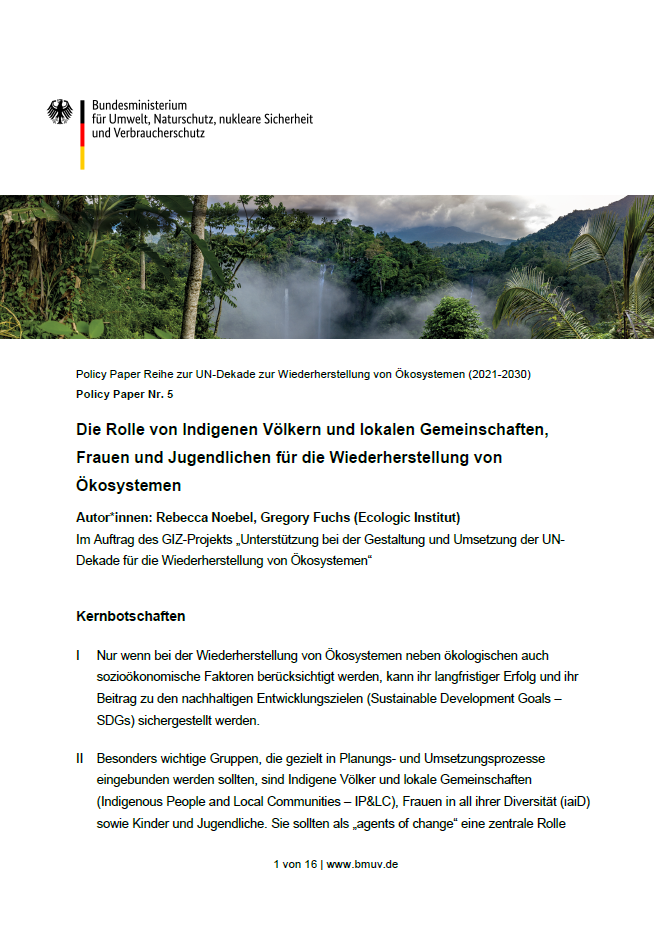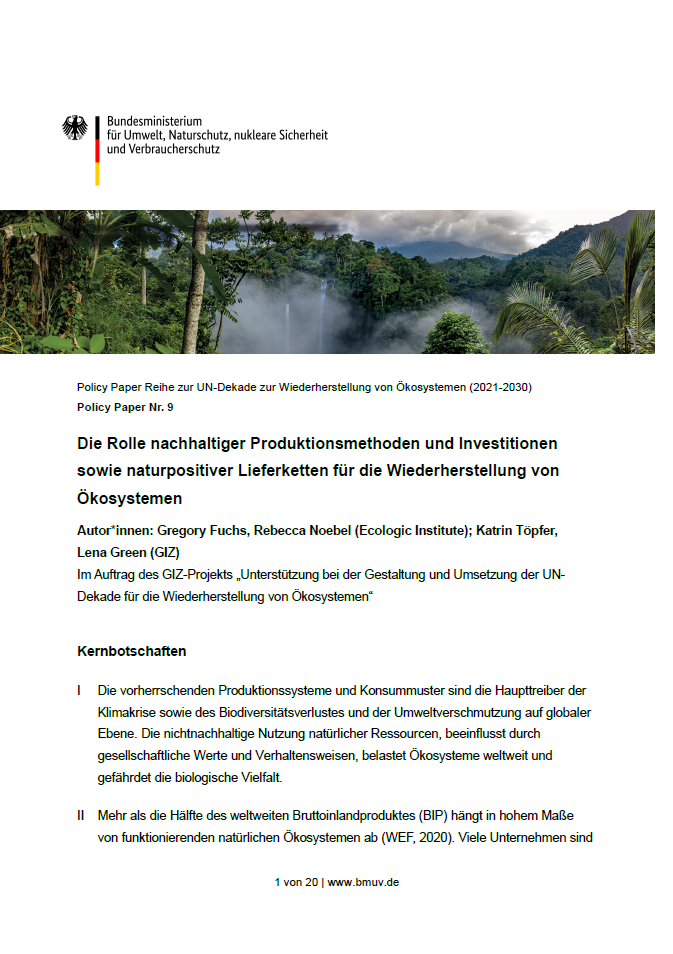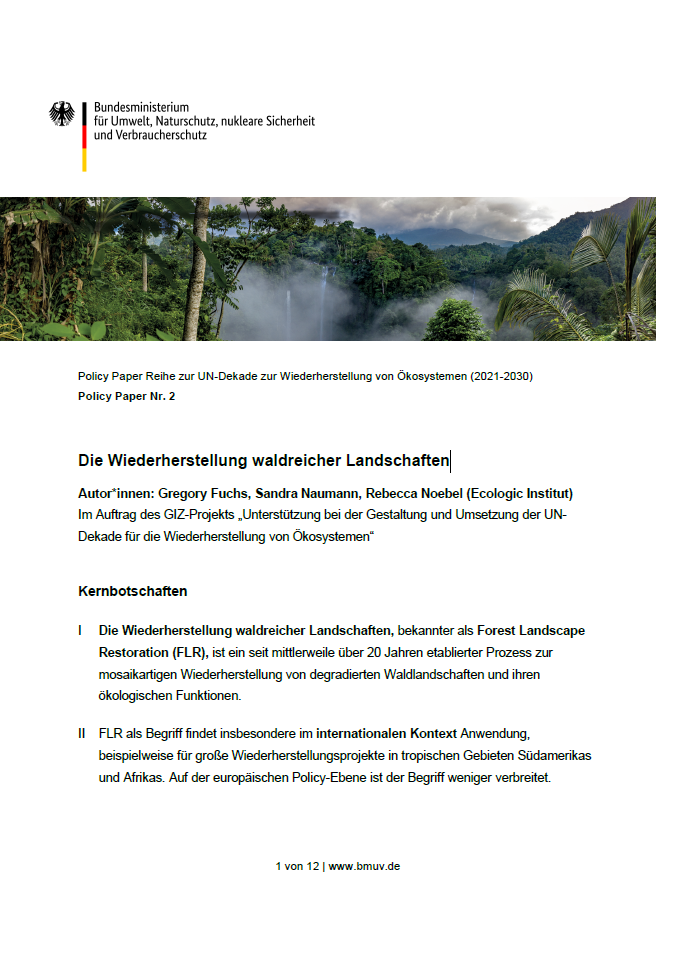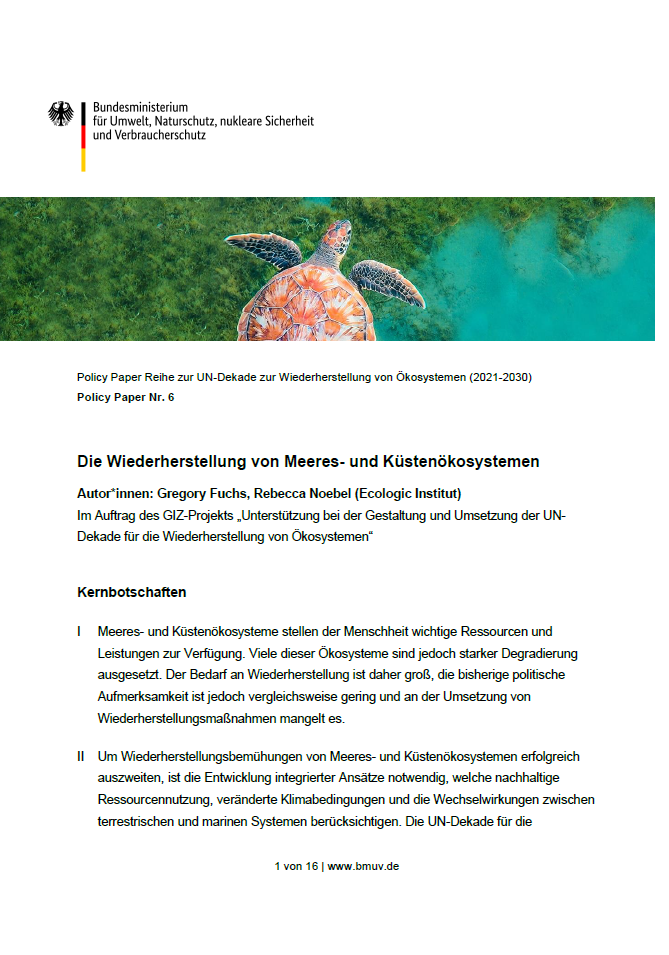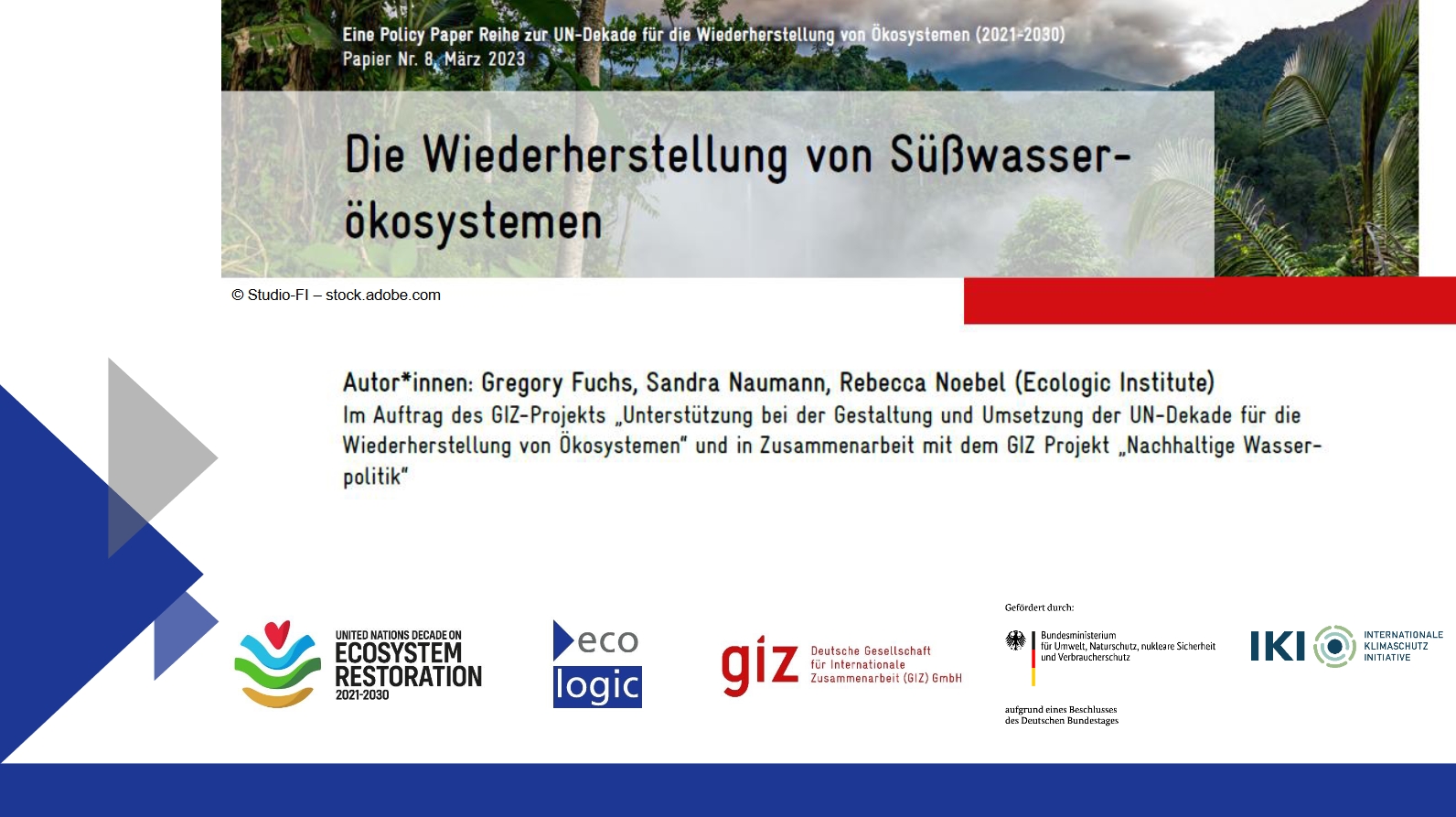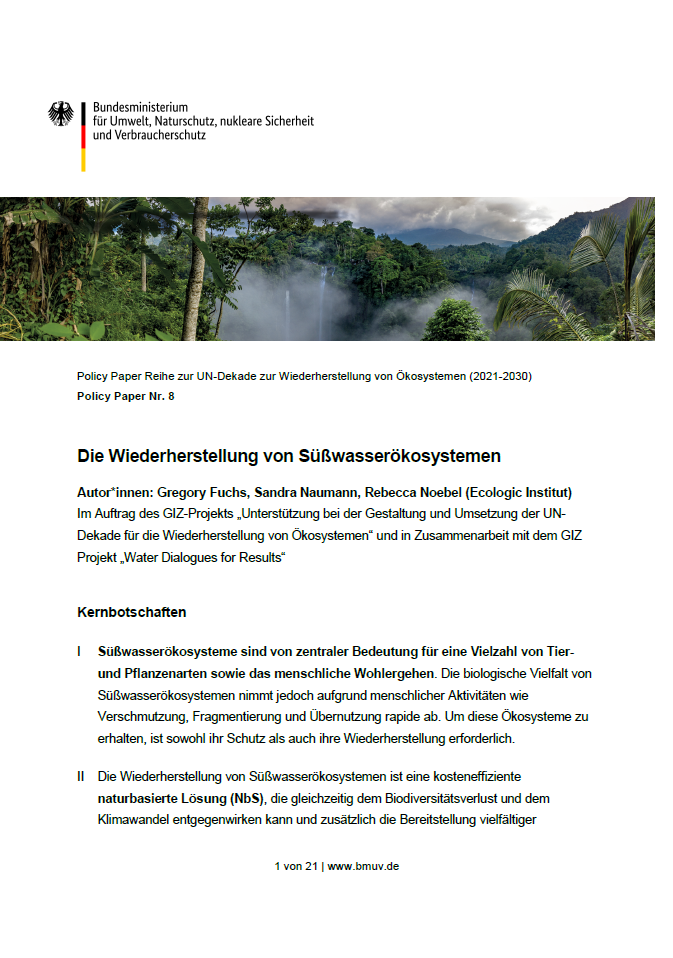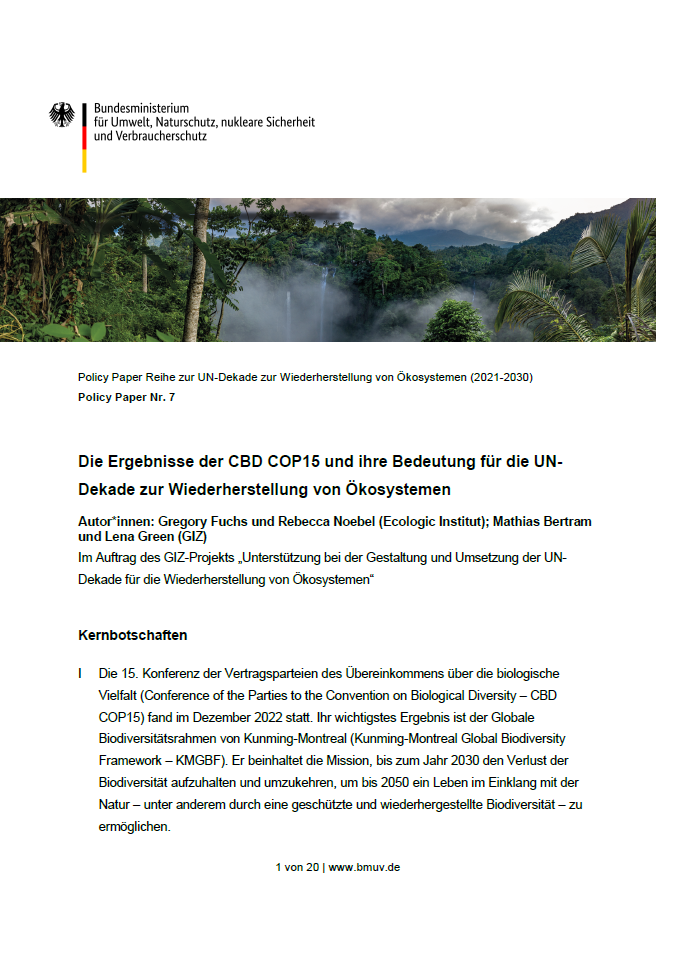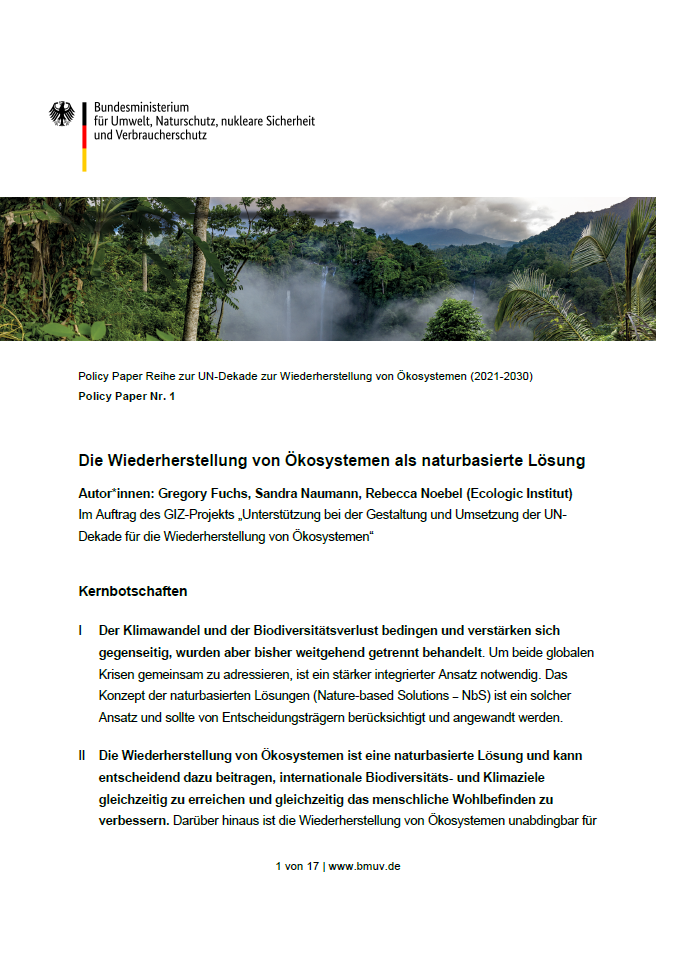Die Rolle von Indigenen Völkern und lokalen Gemeinschaften, Frauen und Jugendlichen für die Wiederherstellung von Ökosystemen
- Publication
- Citation
Noebel, Rebecca; Fuchs; Gregory (2023): Die Rolle von Indigenen Völkern und lokalen Gemeinschaften, Frauen und Jugendlichen für die Wiederherstellung von Ökosystemen. Federal Ministry for the Environment, Nature Conservation, Nuclear Safety and Consumer Protection, Berlin.
In an increasingly interlinked and globalized world, indigenous peoples and local communities are essential for the preservation of their rights, cultures and access to land and resources. What role do they play in the dialog around environmental protection and social justice? This policy paper sheds light on the challenges and opportunities for indigenous peoples and local communities and explores how their voices can be heard and respected in international forums. The paper was composed in 2023 and subsequently updated within the same year to reflect the latest scientific and policy advancements.
The importance of indigenous peoples and local communities
Indigenous peoples and local communities are the custodians of some of the world's most endangered ecosystems. Their traditional knowledge and ways of life offer invaluable perspectives and approaches to solving some of the most pressing environmental and social issues of our time. Despite their important role in protecting the environment, they often find themselves on the margins of society, deprived of their basic rights.
Challenges and conflicts
Conflicts over land rights and access to resources are at the heart of the challenges facing indigenous peoples and local communities. Often, development projects and the use of natural resources without their adequate consent or compensation lead to displacement and disputes. Recognizing and respecting their rights and ways of life are key concerns in these disputes.
Legal and political framework
The international community has developed various legal instruments and frameworks to protect the rights of indigenous peoples, including ILO Convention 169 and the UN Declaration on the Rights of Indigenous Peoples. Despite this progress, implementation at the national level is often inadequate, and indigenous peoples continue to be challenged to advocate for the recognition and implementation of their rights.
Ways to strengthen and support
Strengthening the position of indigenous peoples and local communities requires a multi-faceted approach that promotes their participation in international discussions, supports their traditional ways of life and recognizes their rights to land and resources. Education and awareness programs can help raise awareness of the importance of these communities and mobilize support for their advocacy for rights and recognition.
Conclusion
Indigenous peoples and local communities are central to addressing global challenges and deserve to be at the center of our attention. Their experiences and knowledge are essential to shaping a more just and sustainable future for all. It is time that their voices are not only heard, but also translated into concrete action.
